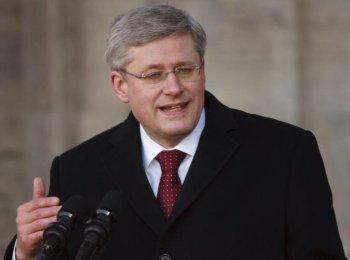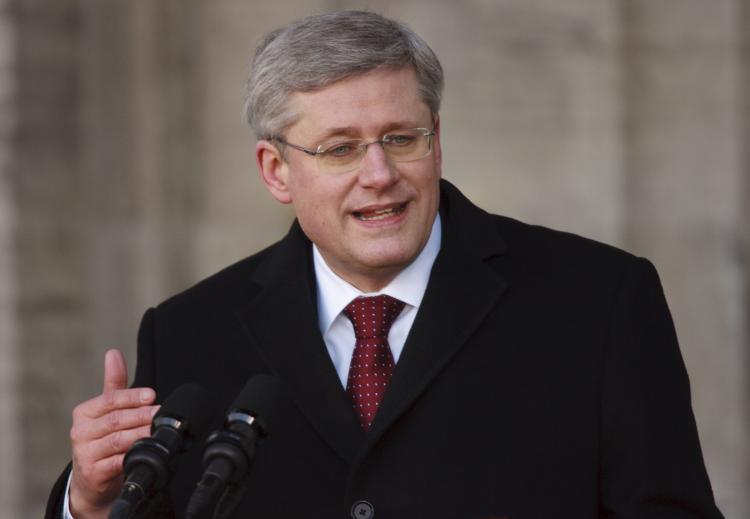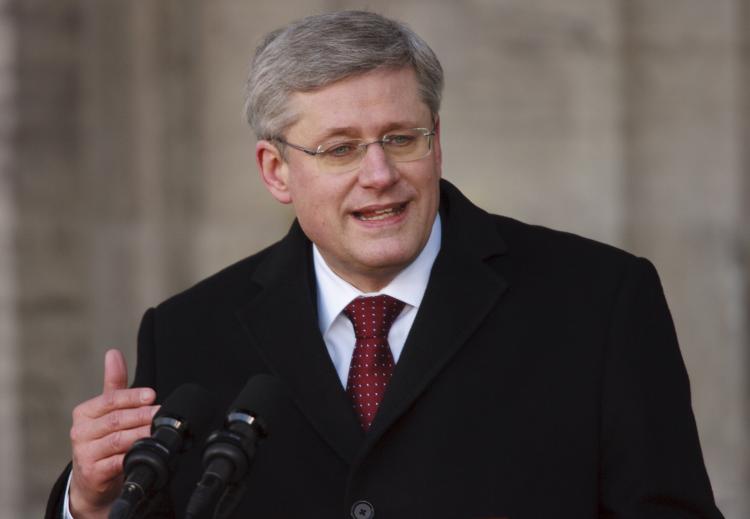Parties are working on their battle formation as the election chugs forward, defining platforms that Canadians will choose from on May 2.
The Liberals are trying to hit the Conservatives where it hurts—government waste and ethics. They have launched a tongue-in-cheek series of download and print-at-home postcards featuring some of the more egregious examples of waste during the G8 and G20 Summits.
They are also trying to counteract Tory attack ads branding Liberal leader Michael Ignatieff as a foreign soul only in Canada to grab the Prime Minister’s job with their own ad listing an array to Tory misdeeds.
These include an RCMP investigation of former advisor Bruce Carson for influence peddling and the successful Liberal non-confidence motion that found the Tories in contempt of parliament, a statement echoed by a recent parliamentary committee report.
Other Liberal ads highlight the party’s emphasis on social spending to help pensions and boost healthcare. Meanwhile, the Conservative’s own feel good ads highlight the relative stability of the Canada’s economy in recent years and Stephen Harper’s successful economic stewardship.
But there is one thing the Liberals and Conservatives do seem to agree on: that they are the only choices in the coming election. When the Tories lost that confidence vote Friday, Ignatieff said there were only two choices in the next election, a “red door” and a “blue door.”
Harper agreed during a campaign stop in Brampton, Ontario, Wednesday, but added the twist that will likely be repeated a thousand times in the days to come.
“The real choice in this election is a choice between a Conservative government or an Ignatieff-led government that all of these other parties will support.”
Both party leaders want to steal votes from the Bloc Quebecois, which will likely claim most of Quebec, and the NDP, which may see increased competition as the Greens again try to score a seat in the House of Commons.
The Greens have hired a lawyer to be included in the television debates, seen as crucial to getting May’s face in front of prospective voters, after the consortium of broadcasters responsible for the debates declined her an invitation.
Calling it “another blow against democracy,” the Greens are asking supporters to sign an online petition and write the major broadcasters that make up the consortium.
May tweeted that she was shocked when the news emerged that she would not be included.
NDP leader Jack Layton is trying to carve out a position attractive to middle-class Canadian, a key demographic the Liberals and Conservatives are also vying for. Layton is calling for improvements to healthcare and a curbing of credit card rates.
Some of Canada’s major think-tanks have started responding to aspects of the parties’ platforms.
The left-leaning Canadian Centre for Policy Alternatives says the Liberal’s post-secondary education plan to direct $1billion into RESPs would be better spent lowering tuition and will fall “unnecessarily short” of achieving its aim.
Meanwhile, the group describes the Conservatives plan to offer a $1,000 credit in EI premiums to small businesses that hire new staff a token gift to the Canadian Federation of Independent Businesses.
The group also counters allegations that an election is a waste of money by suggesting the possible $270 million cost will mostly go to employing Canadians and act as worthwhile economic stimulus.
The right-leaning Fraser Institute has taken issue with the proposed Tory budget that aimed targeted treats at a host of different electorates, including a promise to invest in foreign credentials recognition for immigrants and a tax credit for firefighters.
The think tank wrote in a recent op-ed that the budget did not provide a credible plan to balance the budget and would therefore do little to improve economic growth and create jobs.
The C.D. Howe Institute gave the budget a B-.
Correction: The Fraser Institute was previously mislabelled in this article. The Epoch Times regrets the error.
The Liberals are trying to hit the Conservatives where it hurts—government waste and ethics. They have launched a tongue-in-cheek series of download and print-at-home postcards featuring some of the more egregious examples of waste during the G8 and G20 Summits.
They are also trying to counteract Tory attack ads branding Liberal leader Michael Ignatieff as a foreign soul only in Canada to grab the Prime Minister’s job with their own ad listing an array to Tory misdeeds.
These include an RCMP investigation of former advisor Bruce Carson for influence peddling and the successful Liberal non-confidence motion that found the Tories in contempt of parliament, a statement echoed by a recent parliamentary committee report.
Other Liberal ads highlight the party’s emphasis on social spending to help pensions and boost healthcare. Meanwhile, the Conservative’s own feel good ads highlight the relative stability of the Canada’s economy in recent years and Stephen Harper’s successful economic stewardship.
But there is one thing the Liberals and Conservatives do seem to agree on: that they are the only choices in the coming election. When the Tories lost that confidence vote Friday, Ignatieff said there were only two choices in the next election, a “red door” and a “blue door.”
Harper agreed during a campaign stop in Brampton, Ontario, Wednesday, but added the twist that will likely be repeated a thousand times in the days to come.
“The real choice in this election is a choice between a Conservative government or an Ignatieff-led government that all of these other parties will support.”
Both party leaders want to steal votes from the Bloc Quebecois, which will likely claim most of Quebec, and the NDP, which may see increased competition as the Greens again try to score a seat in the House of Commons.
The Greens have hired a lawyer to be included in the television debates, seen as crucial to getting May’s face in front of prospective voters, after the consortium of broadcasters responsible for the debates declined her an invitation.
Calling it “another blow against democracy,” the Greens are asking supporters to sign an online petition and write the major broadcasters that make up the consortium.
May tweeted that she was shocked when the news emerged that she would not be included.
NDP leader Jack Layton is trying to carve out a position attractive to middle-class Canadian, a key demographic the Liberals and Conservatives are also vying for. Layton is calling for improvements to healthcare and a curbing of credit card rates.
Some of Canada’s major think-tanks have started responding to aspects of the parties’ platforms.
The left-leaning Canadian Centre for Policy Alternatives says the Liberal’s post-secondary education plan to direct $1billion into RESPs would be better spent lowering tuition and will fall “unnecessarily short” of achieving its aim.
Meanwhile, the group describes the Conservatives plan to offer a $1,000 credit in EI premiums to small businesses that hire new staff a token gift to the Canadian Federation of Independent Businesses.
The group also counters allegations that an election is a waste of money by suggesting the possible $270 million cost will mostly go to employing Canadians and act as worthwhile economic stimulus.
The right-leaning Fraser Institute has taken issue with the proposed Tory budget that aimed targeted treats at a host of different electorates, including a promise to invest in foreign credentials recognition for immigrants and a tax credit for firefighters.
The think tank wrote in a recent op-ed that the budget did not provide a credible plan to balance the budget and would therefore do little to improve economic growth and create jobs.
The C.D. Howe Institute gave the budget a B-.
Correction: The Fraser Institute was previously mislabelled in this article. The Epoch Times regrets the error.







